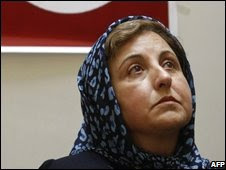
Saudi beheading on the rise!Amnesty International reported that Saudi Arabia has executed 71 people through the end of August this year. Nearly half of them were foreigners, including migrant workers who don’t understand Saudi laws, have no political connections and are too poor to pay “blood money” that would spare them.
Foreign nationals, mostly Asians and Africans, who face capital trials in the conservative kingdom, are frequently unable to understand court proceedings if they are not Arabic speakers, are often not represented by a lawyer and are routinely held for long periods in harsh conditions and coerced into false confessions.
The state does not provide official statistics but Amnesty said it had recorded at least 1,695 executions between 1985 and May 2008. Of these, 830 were foreign nationals - a highly disproportionate figure since foreigners make up about one-quarter of the country's population.
In some cases, execution is followed by crucifixion, Amnesty says in its report.
Saudi officials were not immediately available to comment. They routinely defend beheadings as a quick and clean form of execution sanctioned by the Islamic faith.
Saudi Arabia is one of the few states in the world with a high rate of executions for women. It is also one of the few to execute people for crimes they committed when they were still under the age of 18.
The kingdom applies a strict version of Sharia law, under which rape, murder, apostasy, armed robbery and drug trafficking can all carry the death penalty. Part of the reason for the rapid rise in executions, Amnesty shows, has been an extension of the use of death penalty in the late 1980s to cover "corruption on earth" (sometimes applied to political activities) as well as drugs-related offences.
A Saudi executioner prepares to behead a convicted drug dealer in Jeddah in this 1985 image. Photograph: Rex Features

BBC
GUARDIAN
LA TIMES
















































